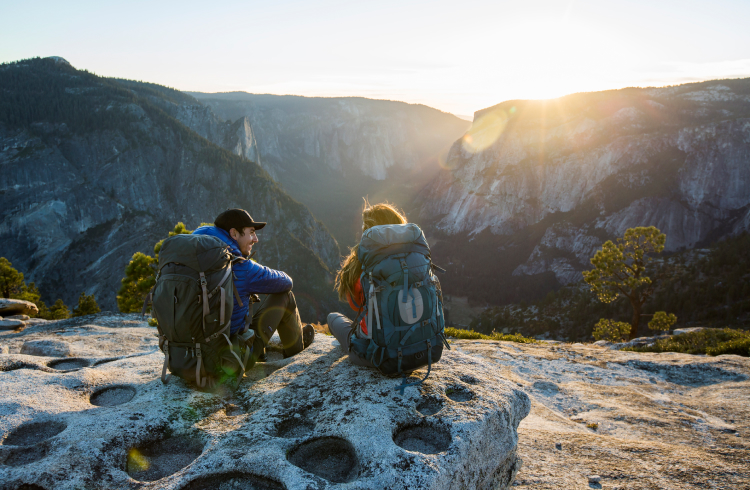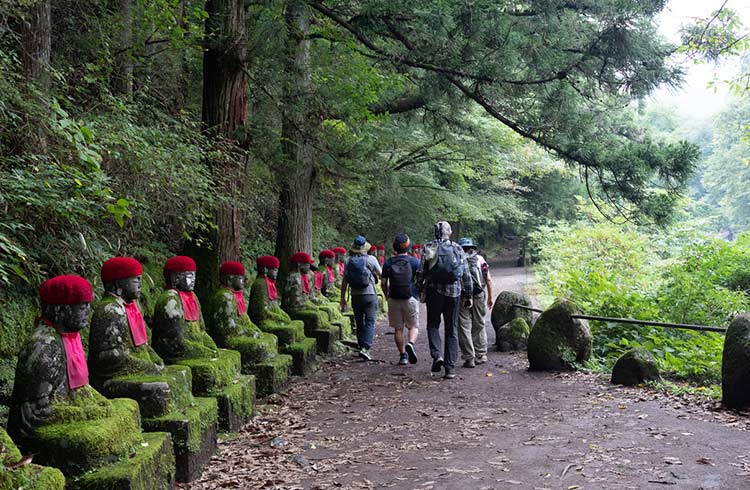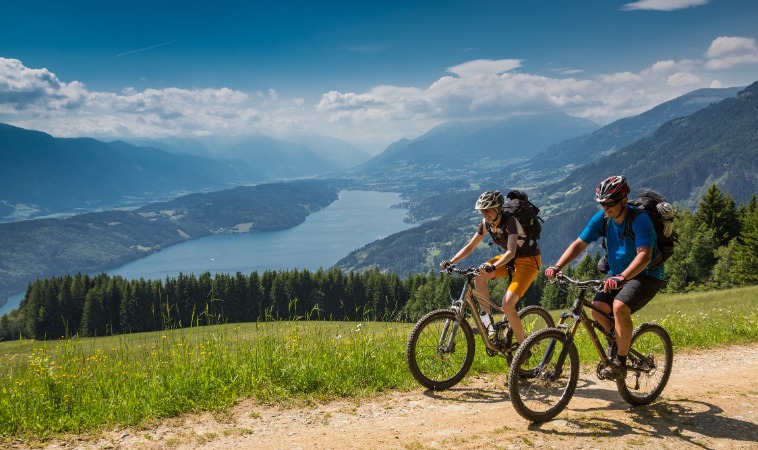How Traveling Cheaply Can Also Be Good for the Planet
Instead of feeling limited by a tight budget, consider how being thrifty can have a positive impact on the environment and communities we visit.
Shares
 Photo © Getty Images / SolStock
Photo © Getty Images / SolStock
While hitting the road on a shoestring budget might not sound like the most enjoyable approach to seeing the world, it can actually be a great way to encourage more sustainable travel habits. From the modes of transport we take to the activities we participate in, here are just a few ways being a frugal traveler can have a positive impact on people and the planet.
- Off-season travel supports ecosystems and local economies
- Cheaper accommodation can be sleek and sustainable
- Simple adventures encourage richer connection
- Go vego and BYO to cut costs and emissions
- When it comes to transport, think slow and low
Off-season travel supports ecosystems and local economies
There are plenty of perks to traveling over the quieter months in addition to significant savings, like avoiding the crowds and taking advantage of more availability in sought-after destinations. However, heading on an off-peak adventure also benefits the communities and places we visit, particularly when they are economies that rely heavily on tourism. Traveling to a region during a time when trade is scarce can help to keep local businesses afloat when they might otherwise go for months without an income.
Off-season holidays mean you're not contributing to over-tourism, therefore reducing pressure on natural resources and giving nature a chance to regenerate. Less rubbish to be disposed of and more water to go around can ease the strain on the environment, while those traveling by car will likely notice a decrease in traffic and air pollution when hitting the road off-season.
TIP – try seeking out 'second cities' or lesser-known destinations that have just as much to offer without the 'tourist hotspot' price tag.
Cheaper accommodation can be sleek and sustainable
Budget hotels and hostels have come a long way in recent years, with many now designed to offer both stylish and sustainable lodging that caters to families, professionals and backpackers alike. Having a smaller overall footprint than larger hotels means modest accommodation is often inherently more eco-friendly, while common spaces such as kitchens and laundry areas allow resources to be shared. If you'd prefer privacy, there are plenty of cabins, tiny houses and wilderness huts that might be more your style.
Avoiding the well-known chains for locally owned accommodation can also mean your dollars are going back into the local economy. For example, a homestay can support the livelihood of an entire family, and a small-scale hotel that's a little bit further from the town center might grow its own produce and use renewable energy. At the end of the day, it pays to do some research before you book to ensure your money is spent responsibly, no matter your budget.
TIP – try Fairbnb, an ethical alternative to Airbnb that supports sustainable community projects, or consider house-swapping as a low-cost, environmentally-friendly option if this is available to you.

Simple adventures encourage a richer connection
Making travel dollars go further means getting creative with your choice of activities. Walking or cycling around a new city are great ways to discover the sights and tread lighter along the way, while camping is a sustainable vacation option that also delivers on adventure and that much-needed connection to nature.
TIP – save money before you even leave the house by borrowing the items you might not have a lot of use for later, such as a backpack, yoga mat or hiking boots.
Activities such as walking, cycling and setting up at a campsite allow us to see and experience more than if we were sitting in a car or a high-rise hotel room and encourage us to engage with local people and cultures, not to mention the health benefits of staying active and spending time outdoors.
TIP – many volunteering opportunities such as conservation work, fruit picking, or joining a WWOOFing program offer free board and meals and enable to you to connect with the local community while learning a new skill.
Go BYO to cut costs and emissions
Meal expenses are a key factor in budgeting for travel, and, with a little planning, it's an area where you can also avoid unnecessary waste. Packing your own lunch in stainless steel food containers when you're heading out for the day means you won't be tempted to grab a pre-packaged sandwich on the go, while carrying a reusable water bottle can save countless plastic bottles from landfill.
TIP – many cafes offer a discount for those who bring their own coffee cup, so it's a win-win.
Much like at home, eating a vegetarian diet while traveling benefits both the earth and our grocery bill, with farming and processing animals for meat generating 20 times the greenhouse gases of vegetables. Go for the vegetarian option wherever possible and opt for seasonal markets over fancy restaurants to benefit the health of your body, your bank balance and the planet. Eschewing meat and dairy will also make your meals easier to digest, which is always a plus when you're on the road.
When it comes to transport, think slow and low
How we get to our destination is one of the most important decisions impacting our carbon footprint, and there's no denying the high price of air travel on our wallets and on our planet. You might have found yourself Googling train timetables to avoid the cost of a last-minute flight, however, there's more to love about a rail pass than the price. Traveling by train is one of the most energy-efficient modes of transport, and it's also one of the most scenic.
As a rule, the shorter the distance you travel, the lower your carbon footprint, although covering fewer miles doesn't mean missing out on experiences. On the contrary, staying put for longer can lead to a richer experience and understanding of a place. When you're not focused on getting to your next destination, you'll have more time to chat to locals, seek out traditional culture and cuisine, and get a better sense of what it feels like to live in and be a part of a community.
Related articles
Simple and flexible travel insurance
You can buy at home or while traveling, and claim online from anywhere in the world. With 150+ adventure activities covered and 24/7 emergency assistance.
Get a quote


No Comments